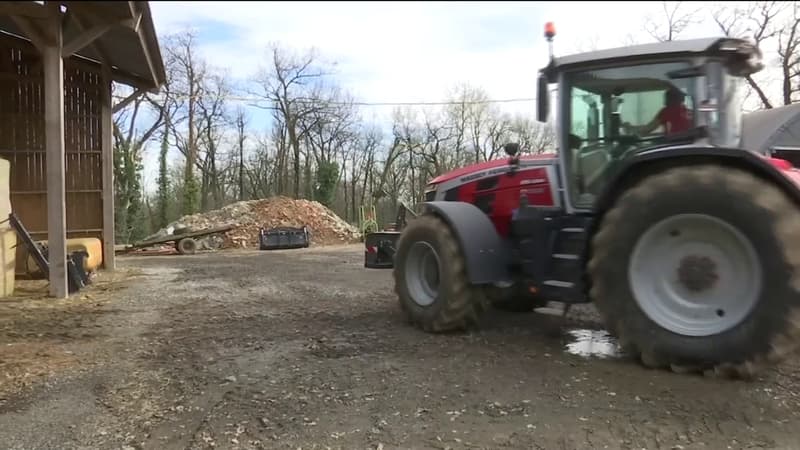Reworked after the agricultural crisis, the agricultural orientation bill that will reach the National Assembly chamber on Tuesday is based on the notion of “food sovereignty”, with the declared objective of accelerating the arrival of new generations of farmers freed from certain environmental limitations.
It covers very diverse topics, such as training, hedges or the situation of flock protection dogs. He is hailed by most agricultural unions for his simplification measures and promised facilitation of irrigation or livestock projects, even if he does not address the issue of income. Environmental NGOs, on the contrary, criticize him for not changing the current model, to the detriment of ecosystems.
- Facilitate the advancement of certain projects
The first article, as demanded by the first FNSEA union, dedicates “the protection, promotion and development of agriculture and fishing” to the rank of “greater general interest”, since they “guarantee the agricultural and food sovereignty of the Nation” . One of the objectives set is to nourish the reflection of the administrative judge and facilitate the advancement of projects for water retention structures or surface livestock buildings, when considered with an objective of environmental preservation.
Elected officials and jurists doubt its scope: environmental protection has constitutional value while this great general interest is enshrined in a simple law. It also provides that public policies must contribute “to the protection of France’s food sovereignty” and could include in the law certain non-binding objectives, such as the wording “before July 1, 2025 and then every ten years of an agricultural programming multiannual”.
- Training, installation and financing.
The bill aims to provide a framework for action to the agricultural world to face two major challenges: attracting workers – remember that a third of the approximately 500,000 farmers will reach retirement age within ten years – and adapting production systems to climate change. , in particular through technical progress (digital, genetics, robotics).
At the moment, it sets the objective of “400,000 agricultural holdings” by 2035, but the opposition would prefer to enshrine in law a minimum number of farmers in France. The text also creates a new bac+3 level qualification and establishes a “France agricultural services” network: a single window for applicants for the installation or transfer of farms.
It also aims to create “farmland investment groups” to raise money from public or private investors to buy land and rent it to new farmers who do not have the opportunity to buy. But a coalition of opponents eliminated the measure in committee, concerned about a takeover by the financial spheres of agriculture. The presidential side will try to reestablish it in the chamber by adding safeguards.
- Irrigation and breeding
The text grants a presumption of urgency in the event of litigation regarding the construction of a water reserve for irrigation. Objective: reduce procedural delays and “resolve litigation in less than ten months.”
This presumption of urgency will also affect livestock projects, whose construction licenses are periodically subject to appeals by nature defense associations.
- Reduced risks in case of environmental damage
The government wants to adapt the scale of sanctions and replace criminal sanctions with administrative sanctions in certain cases of environmental damage. “We are not going to send a farmer to prison because he cut his hedge at the wrong time,” summarized Agriculture Minister Marc Fesneau.
The executive initially planned to seek the power to change the sentencing scale through ordinances, but ultimately introduced an amendment to enshrine these changes directly into law.
- “Unique” regulations on coverage
The FNSEA estimated that the main obstacle to hedge planting was administrative mille-feuille, with “14 different regulations”. This “corpus” will be unified into a “single regulation.” The text reaffirms the prohibition of destroying a hedge, while providing for exemption conditions (replanting, for example).
Source: BFM TV


